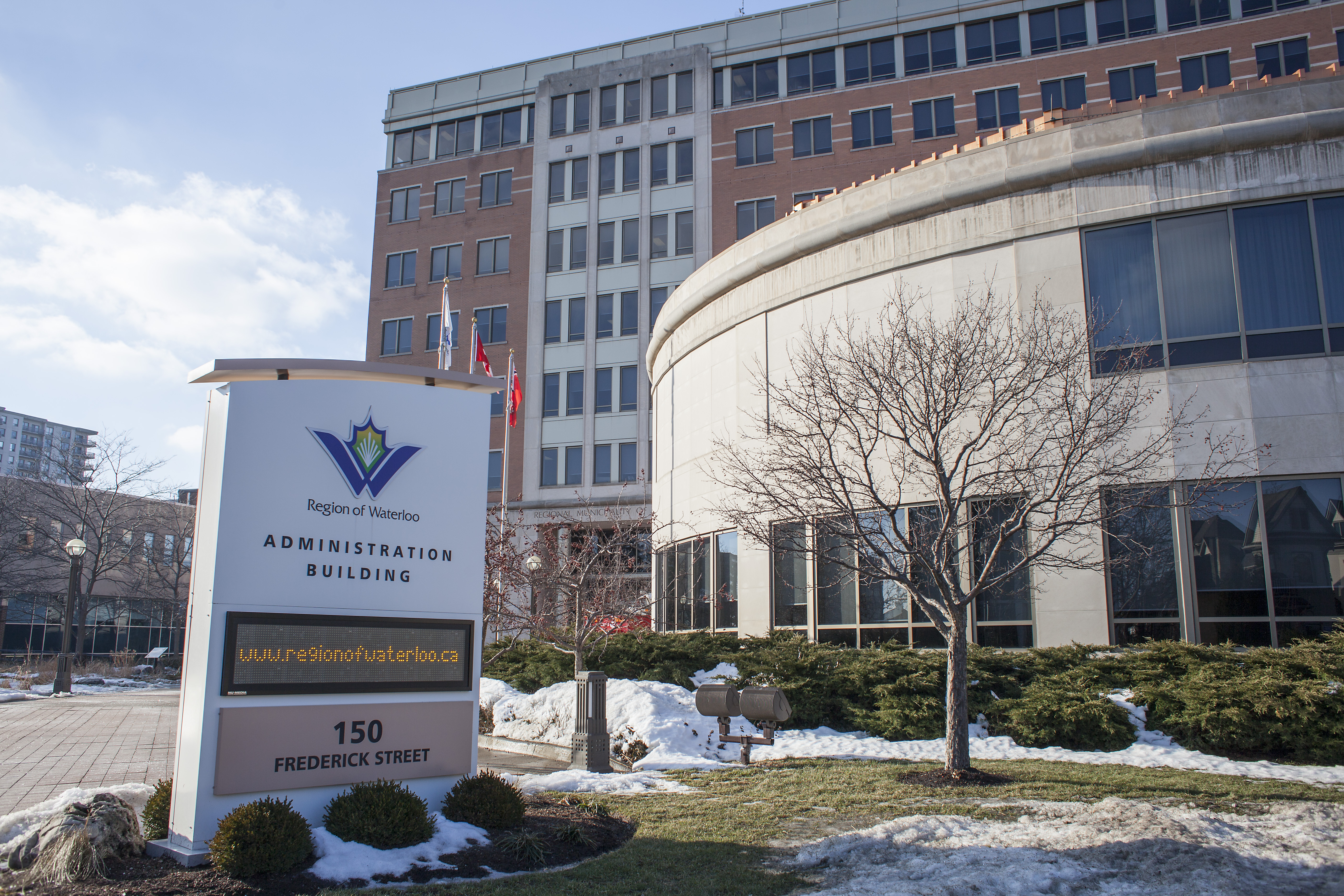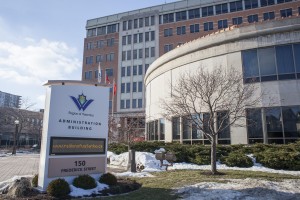New report reveals additional environmental concerns with Line 9


Members of the Waterloo Region Coalition Against Line 9 met on Feb. 21 at the Region of Waterloo building to oppose the reversal of an oil pipeline that passes through the Region..
Friday’s press conference was intended to publicly discuss a report prepared by activist groups that outlined negative social and environmental hazards associated with the Enbridge pipeline, Line 9B.
Enbridge, a corporation focusing on the delivery of crude oils and other liquid transportation systems, is planning to ship bitumen through the pipeline despite opposition and significant safety concerns. It is awaiting a decision from the National Energy Board to determine if it can reverse the direction of the oil flow in the pipeline from North Westover, Ontario to Montreal.
The event was small in numbers, but speakers were passionate nonetheless.
Sakura Saunders, a representative from Rising Tide Toronto, explained that there is an “attempt to ship bitumen in a form of dilbit [diluted bitumen], which is tar sand bitumen mixed with natural gas.”
“There are a number of problems with the shipment of dilbit which the report goes over,” she added.
Representatives from multiple groups presented their cases along with an eight-page document that summarized their perspective on why the project should be halted immediately.
The document cited numerous sources, including government reports, and was endorsed by over ten academics in related fields.
The report points to numerous problems posed by the transportation of diluted bitumen, including potential contamination to food and water sources, infringement of treaty obligations to First Nations populations and the economic cost of an oil cleanup, should a spill occur.
Elaborating on the dangers, Saunders warned that dilbit is a dangerous substance.
“One-time exposure can cause long-term issues, which is what we’ve seen in both [the] Mayflower, [Arkansas] and Kalamazoo, [Michigan spills] in 2013 and 2010 respectively,” she said. “Within two miles people reported vomiting, burning of the eyes and throat.”
According to Saunders, reports by Enbridge support these concerns.
“The most jaw-dropping data was from Enbridge’s own reporting about the safety of the pipeline, about the effectiveness of their inline inspection systems and ability to detect leaks” said Saunders.
Rachel Avery, who spoke on behalf of the local Grand River Indigenous Solidarity group, also voiced her concerns at the event.
“Enbridge, with the complicity of the National Energy Board (NEB) and the federal government are continuing the process of colonization by flouting their treaty responsibilities to the indigenous nations and communities along Line 9’s route,” she said. “There has been no consultation or regard for land claims in this territory and there are potentially devastating impacts.”
Mark Ciesluk, president of CKMS-FM radio station addressed, was also present at the event and called for local media organizations to inform the public about the controversial pipeline.
He believed that there has been a “shocking lack of local media coverage of the Line 9 reversal process.”
Ciesluk called for “the K-W Record, CBC Radio, Rogers Cable and other local media organizations to pick up the ball and help us start a conversation about Line 9 before it is too late.”

